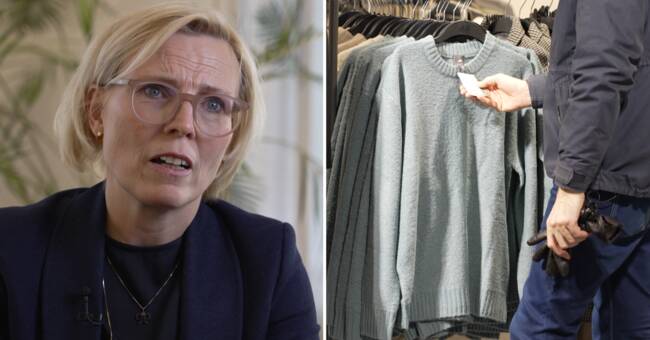In the center of Liljeholmen in Stockholm, many people shop on Fridays.
Most say they are noticed by the price increases.
- When everything is so expensive, wages must increase so you can afford it, says Malek Kalhitmrawe who just bought a sandwich.
Maren Buchmüller, who trades with her two sons, also thinks that the higher prices should lead to wage increases.
- I noticed it when I bought a Bregott package that cost almost SEK 40.
Somewhere you have to get a little more money so that the economy spins around.
Otherwise you can not buy a pair of shoes that you would otherwise have bought, she says.
"Can get a little messier"
Clothes, transport, vegetables, but above all electricity became much more expensive in December compared with the year before.
The price of certain white goods also increased, according to Statistics Sweden.
In November, the inflation rate, the so-called Consumer Price Index CPIF, was 3.6 per cent.
In December, the rate of price increase was 4.1 percent.
This is the highest rate of increase since 1993.
Not all experts agree on whether the price increases are temporary or not.
But according to the trade union organization LO's newly appointed chief economist, Laura Hartman, high prices can lead to the next wage movement not being as simple as usual.
- It is not excluded that it can get a little messier.
We have already pointed out earlier that real wages have not really kept pace with the working group compared with white-collar workers.
That gap has widened.
And now, of course, above all, energy prices that drive inflation are also eroding real wages.
There is certainly a need to do something about it, says Laura Hartman.
"Not the way it works"
Jonas Frycklund, acting chief economist at the Confederation of Swedish Enterprise, does not agree.
- That's not how it works.
We have agreements that last until 2023. And then we will see what the situation looks like then.
But then that wage formation will depend on what international competitiveness looks like and we have had productivity improvements in the Swedish economy, he says.
Petri Houvinen in the center of Liljeholmen says he has not received any salary compensation for the higher prices.
- Unfortunately not.
We will change that, because it is a matter of negotiation.
You have to negotiate for that, if possible, he says.

